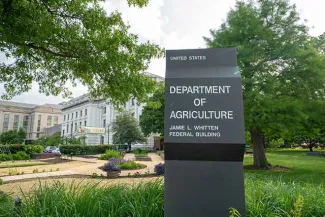
House Farm Bill could chop climate-smart programs
Click play to listen to this article.
(Greater Dakota News Service) The U.S. House of Representatives will likely vote this summer on a version of the Farm Bill, which passed through the committee process last month.
Some farmers and ranchers are concerned about cuts to climate-smart programs, including the Environmental Quality Incentive Program, which distributed more than $31 million to South Dakotans last year. The program and three others have been funded by Inflation Reduction Act dollars since 2022, when President Joe Biden approved nearly $12 billion for the national programs over four years.

© iStock - Melissa Kopka
It could change under the House version of the Farm Bill, which instead proposes increased subsidies for large-scale operations.
Tanya Svec, a member of Dakota Rural Action who helps run her in-laws' small cattle farm in Deuel County, which received a grant this year, said it is appropriate the program provides opportunities for small-scale farms to get grants, rather than just the large-scale operations policy tends to favor.
"That's really helpful for those small economies and keeping things local and building some resiliency into the farming communities," Svec explained.
Svec pointed out the business is currently finalizing a grant to fund a water system to help the operation with rotational grazing, a practice benefiting landscapes by letting some pastures rest while others are in use. It allows native plants to grow and protects watersheds. Demand for the program exceeded supply in 2023. Of the nearly 1,500 South Dakota applicants, only 27 percent were accepted, according to a report from the Institute for Agriculture and Trade Policy.
Svec observed more people sought out her farm's beef during and since the pandemic, which exposed supply-chain issues. She sidesteps big industrial distribution by marketing directly to customers.
"We like to raise cattle in a particular way," Svec stressed. "It's hard to be rewarded for going the extra mile for not using antibiotics, for grass-fed grass-finished beef if you remain in the standard agricultural system."
















